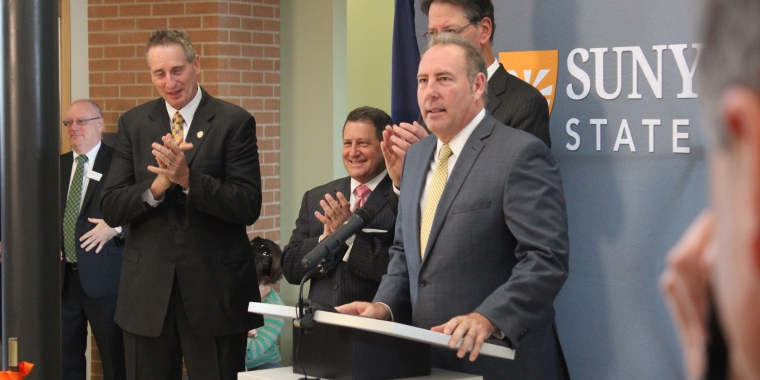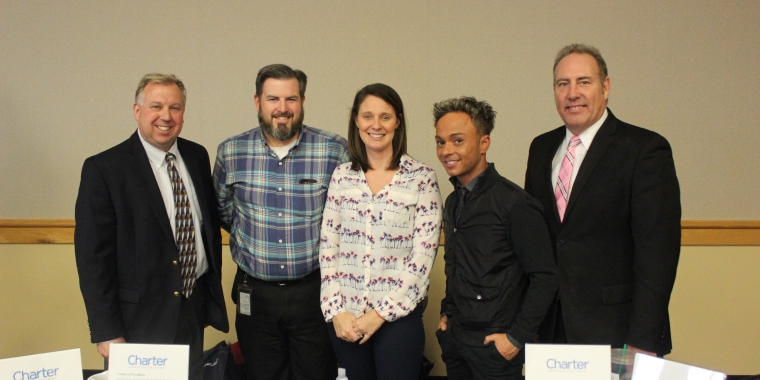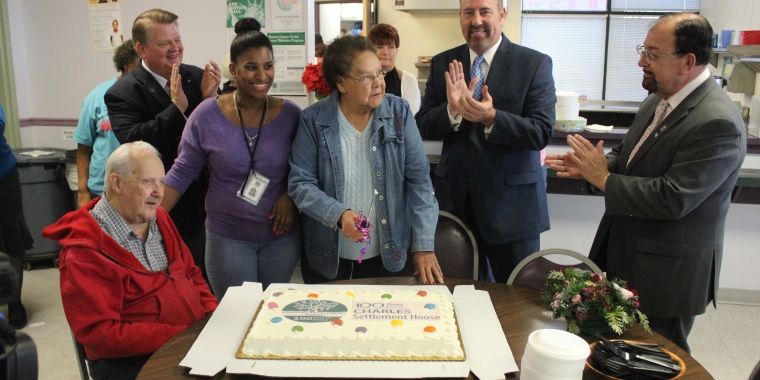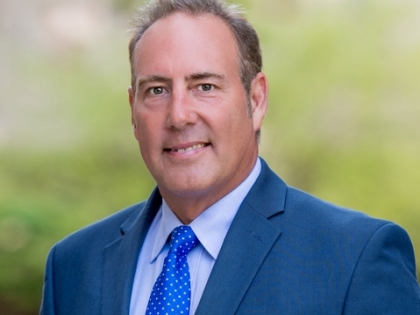
Robach: Dr. Berk, CEO of University of Rochechester Medical Center, Speaks to Upstate Caucus on Graduate Medical Education
Joseph E. Robach
March 1, 2009
Governor’s Plan to Redistribute G.M.E Funding Will Cripple
Upstate Hospitals, Greatly Reduce Upstate Physicians, and Negatively Impact the Economy
Dr. Bradford Berk, CEO of URMC, spoke urgently to a joint Legislative Upstate Caucus today about the Governor’s proposal to redistribute Graduate Medical Education (GME) funding from the Professional Education Pool to fund a new Indigent Care Pool. This transfer is expected to negatively impact Strong Memorial Hospital and Highland Hospital by nearly $12 million in the 2009-2010 state fiscal year.
“I want to thank Dr. Berk for coming here today to talk about the GME redistribution” stated Senator Robach. “This proposal will disproportionately affect Upstate hospitals and will further cripple our economy. As Upstate legislators, we need to ban together to halt these items in the budget that will jeopardize the health of Upstate New Yorkers.”
Reducing GME funding will exacerbate the current physician shortage by constricting the pipeline of new physicians being trained in the region. Specifically, reductions in GME funding will make it difficult to recruit faculty and will reduce the ability to train medical students. Currently, more than half the physicians who complete their residency training at the University of Rochester Medical Center remain in the community. With the current shortage of doctors in the Rochester region expected to worsen in the near future, having to decrease the ability to educate physicians will be especially devastating to the region’s future physician supply.
“URMC appreciates the enormous fiscal challenge that our state is facing and is already making difficult choices as it tightens its own belt. But I urge lawmakers to consider the unintended yet devastating consequences of this proposal,” said University of Rochester Medical Center CEO Bradford Berk. He continued “URMC hospitals stand to lose nearly $12 million per year in payments for medical residents and fellows -- cuts that would force the rapid downsizing of our training programs and leave Rochester disadvantaged in attracting and retaining its physician workforce.”
In addition, the current GME proposal will reduce jobs in Rochester, reduce availability of specialists to train physicians and provide medical services to the community, reduce access to both primary and specialty care physicians, and contribute to the decline of the Upstate region by re-distributing needed funding for training and medical services to downstate.
“I want to extend my deep appreciation to my colleagues on both sides of the aisle for coming together to hear the concerns of Dr. Berk. The issue of GME redistribution is an issue that will negatively impact all our Districts and it is necessary that we put politics aside to fight to ensure that we preserve Upstate hospitals” stated Senator Robach.
The next meeting of the Upstate caucus will be held in approximately two weeks and will focus on healthcare. Guest speakers include the Western New York Healthcare Association, Rochester Regional Healthcare Association and the Iroquois Healthcare Association of New York.
Share this Article or Press Release
Newsroom
Go to NewsroomRochester Receives $16 million for Anti-Poverty Initiative
November 30, 2016
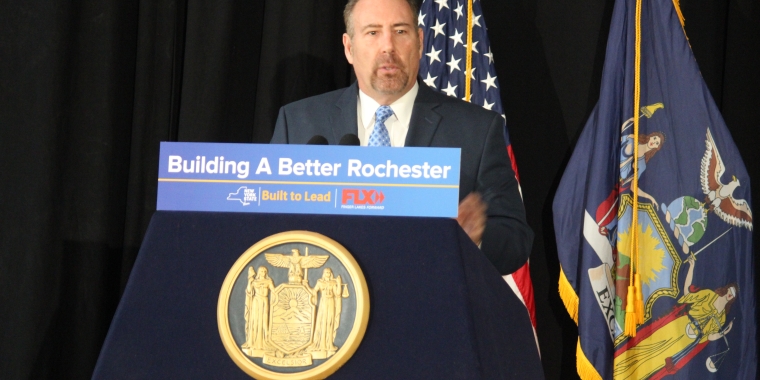
SUNY Empire State College Grand Opening
November 17, 2016
